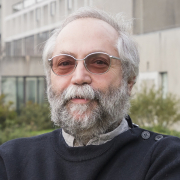
Copyright : Laboratoire LEMAR- 2018
François LE LOC’H
International
AFD
Start Date
04/04/2025
End Date
04/04/2025
Libreville, the coastal capital of Gabon, is unique on the scale of the entire Atlantic coast: it is the only African capital to be surrounded by protected or semi-protected natural areas. The capital thus benefits from a rich natural environment, still largely preserved, surrounded by a green belt forming an “Emerald Arc” at the gates of the city, featuring flagship species and exceptional ecosystems. In order to guarantee in the long term the contribution of coastal ecosystems and protected areas to the sustainable development of the Libreville region, the National Agency of National Parks (ANPN) is implementing the Emerald Arc project. It aims to improve the scientific knowledge, management, development, enhancement and long-term territorial integration of protected areas around Libreville. The scientific component of the project aims to provide a scientific reference state on the ecological conditions of coastal and marine ecosystems that can provide information on levels of pollution, erosion, the state of the fish stock, the environmental services provided to the population and their economic implications. This project is structured around 4 research batches: Modelling of hydrological and sedimentary circulation; Characterization of pollution, analysis of its impacts and risks for biodiversity and public health; Analysis of fish productivity in coastal environments; Analysis of the value of coastal ecosystem services; and a coordination and capacity building batch. Emerald Arc improves scientific knowledge for the management of ecosystems and the environmental services they provide.
#top .avia-gallery.av-av_gallery-36ac991f58b47b1e65df8a5e44ce3ffe .avia-gallery-thumb a{ width:25%; }Le partenariat qui est développé est multi institutions associant aussi bien des instituts du centre de recherche national gabonais (IRAF, IRET, CNDIO, AGEOS), des laboratoires de l’IRD (UMRs LEGOS, MARBEC, LEMAR, ESPACE-DEV, SRC) et du CNRS français (UMRs LEGOS, MARBEC) que des universités (Libreville, Masuku, Douala, Cotonou, La Réunion, Portsmouth), des bureaux d’études (BRLI, AsCom) et ONG (WCS). Cette dynamique partenariale innovante permet une mise en réseau d’acteurs de recherche aux niveaux international, régional et local

 RadiCal
Scroll to top
RadiCal
Scroll to top